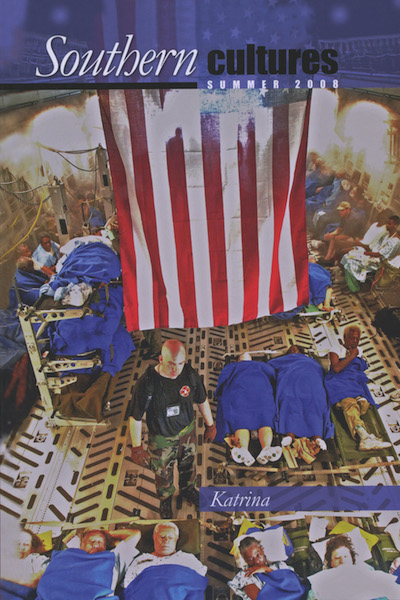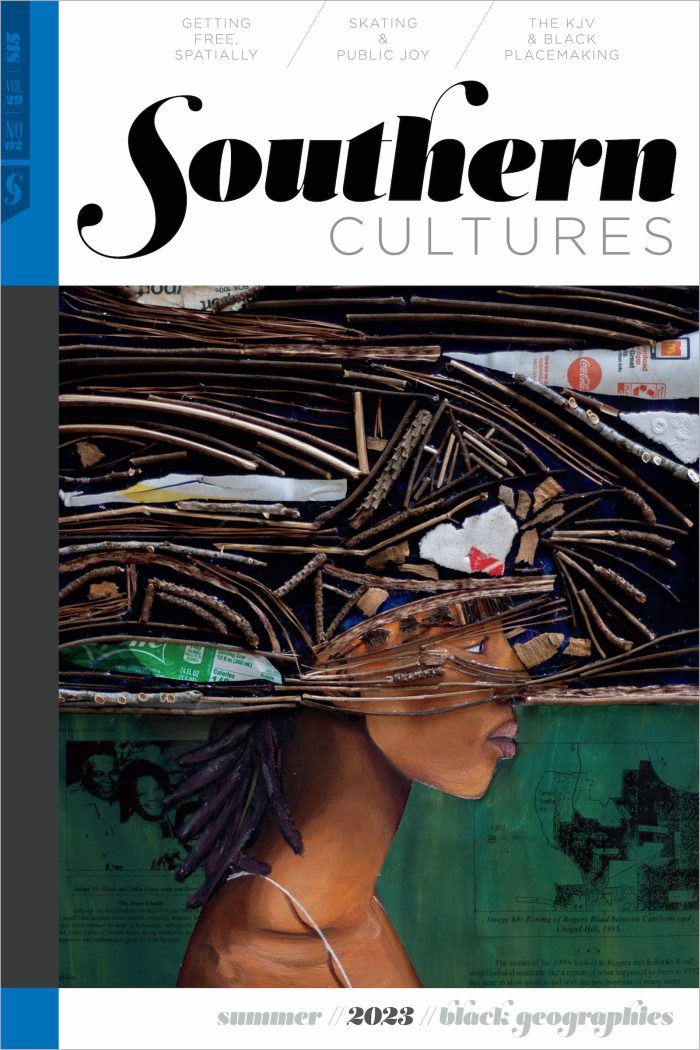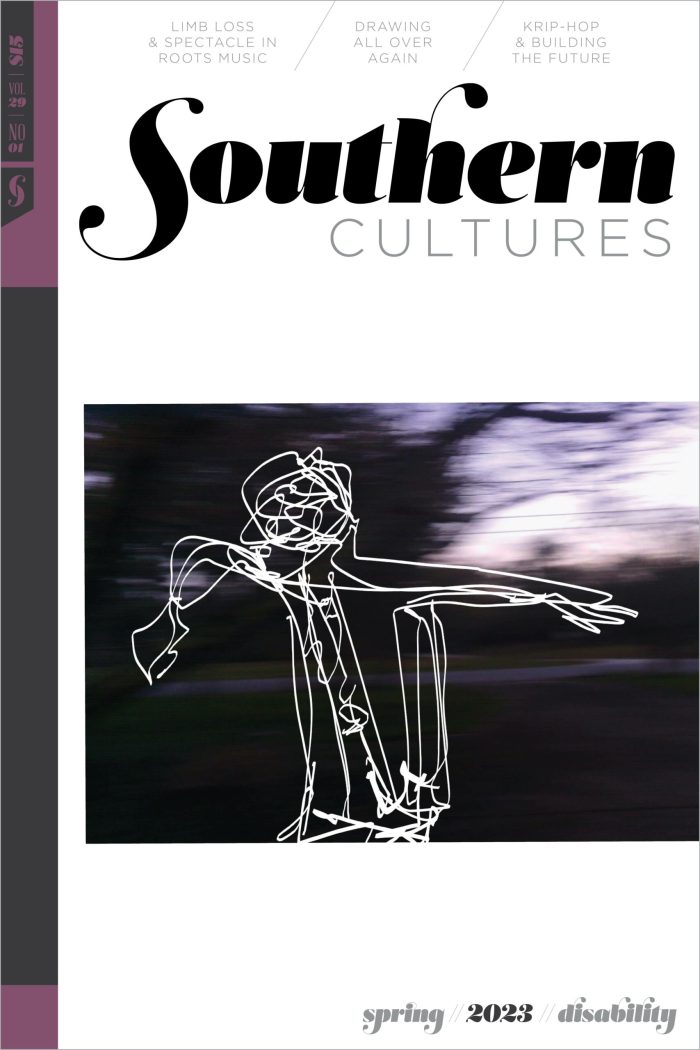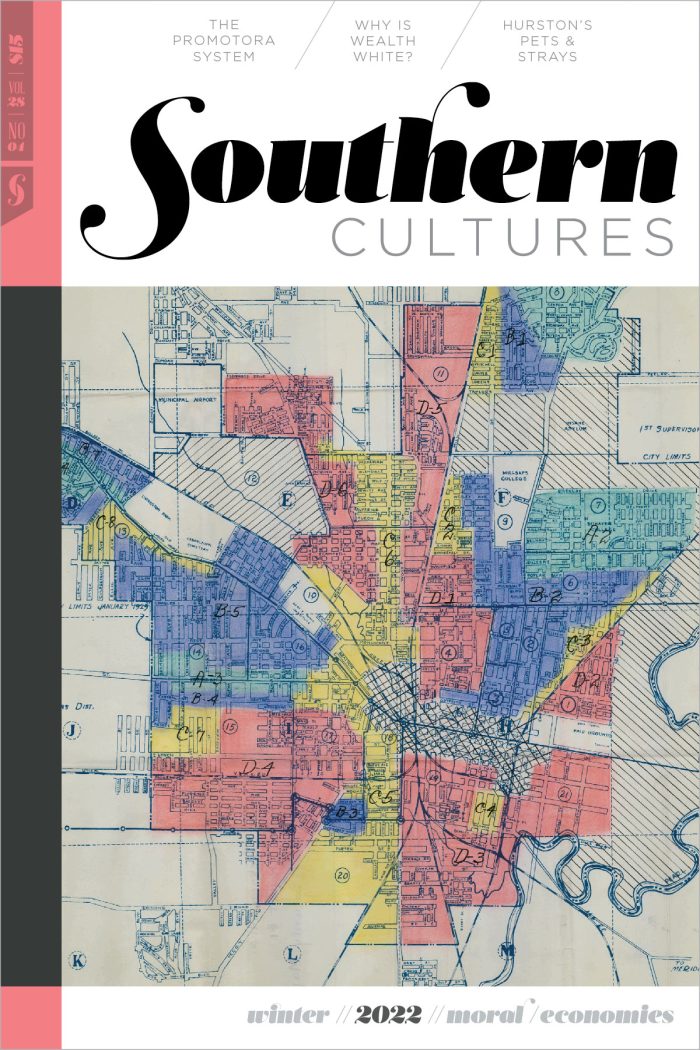BUY ACCESS
by Harry L. Watson
“Bloated corpses bobbing in the streets. Entire communities scoured down to the sand, scarcely one brick atop another. The Superdome and Convention Center, proud symbols of urban greatness, bursting with human misery. Police taking aim at desperate survivors . . .” Bloated corpses bobbing in the streets. Entire communities scoured down to the sand, scarcely »
BUY ACCESS
by Michael P. Bibler
“How can an almost seventy-year-old film, sensationalizing an event eighty-five years prior, so accurately reflect the details of present-day disaster? The film wasn’t depicting something analogous to Katrina as much as it was almost predicting Katrina.” Consider the following narrative: Just before the disaster hit New Orleans, authorities urged every able citizen to leave at »
BUY ACCESS
by Ellis Anderson
“The dooway to Number Five suddenly opened directly onto an ocean writhing in fury. The front rooms no longer existed. The floor of the hallway had been sucked into the surf.” Editor’s Note: Positioned just east of the eye of the storm, Bay St. Louis and Waveland, Mississippi, suffered the brunt of Katrina’s wrath. Winds »
BUY ACCESS
by Maura Fitzgerald
“You’ll wait in this city where they bury their dead and their Mardi Gras floats above ground. And there you’ll rest next to a bust of a Saints quarterback, the last Viking king, a painted foam Tin Man and his oversized heart. And for an epitaph, a sign on a far wall to state the »
BUY ACCESS
by Judith A. Howard
“Little notice has been given to Plaquemines Parish, where few structures escaped damage from Katrina, and where the region south of Port Sulphur looked like a bombed-out war zone. Yet this isolated parish suffered only four deaths and two missing in Katrina, out of a population of 27,000.” Create a place and there will always »
BUY ACCESS
by Karen M. O'Neill
“Many people viewed the extreme disorder after Hurrican Katrina as the failure of a comprehensive system of public works and emergency preparedness they assumed was designed to ensure safety and security. No such system exists.” Many people viewed the extreme disorder after Hurricane Katrina as the failure of a comprehensive system of public works and »
BUY ACCESS
by Anthony J. Stanonis
“The New Orleans Times-Picayune argued it was ‘fortunate that being naked in other cities doesn’t produce the same je ne sais quoi as stripping on a Bourbon Street balcony. Otherwise the tourism revenue we count on from Carnival might remain locked in coffers not our own.'” There was not much color in Aggieland—at least not »
Poetry
BUY ACCESS
by Bob Hicok
I didn’t tell the water it was a pitchfork.I believe the water believed it was a tridenton account of the family resemblance.The road had disappeared, the field,the sundial was about to go under, meaning shadowswould have been unable to stay on schedule.When I touched the water with the pitchfork,it stopped rising, and for a week, »
BUY ACCESS
by Rachel Richardson
Southern Missouri State University Press, 2006 These are the final lines of Mary Leary’s poem, “New Orleans (Big Stuff),” and they speak well not only for the victims of Hurricanes Katrina and Rita, waiting on roofs or in shelters for help during and after the storm, but also for the voices collected here, in Hurricane »





